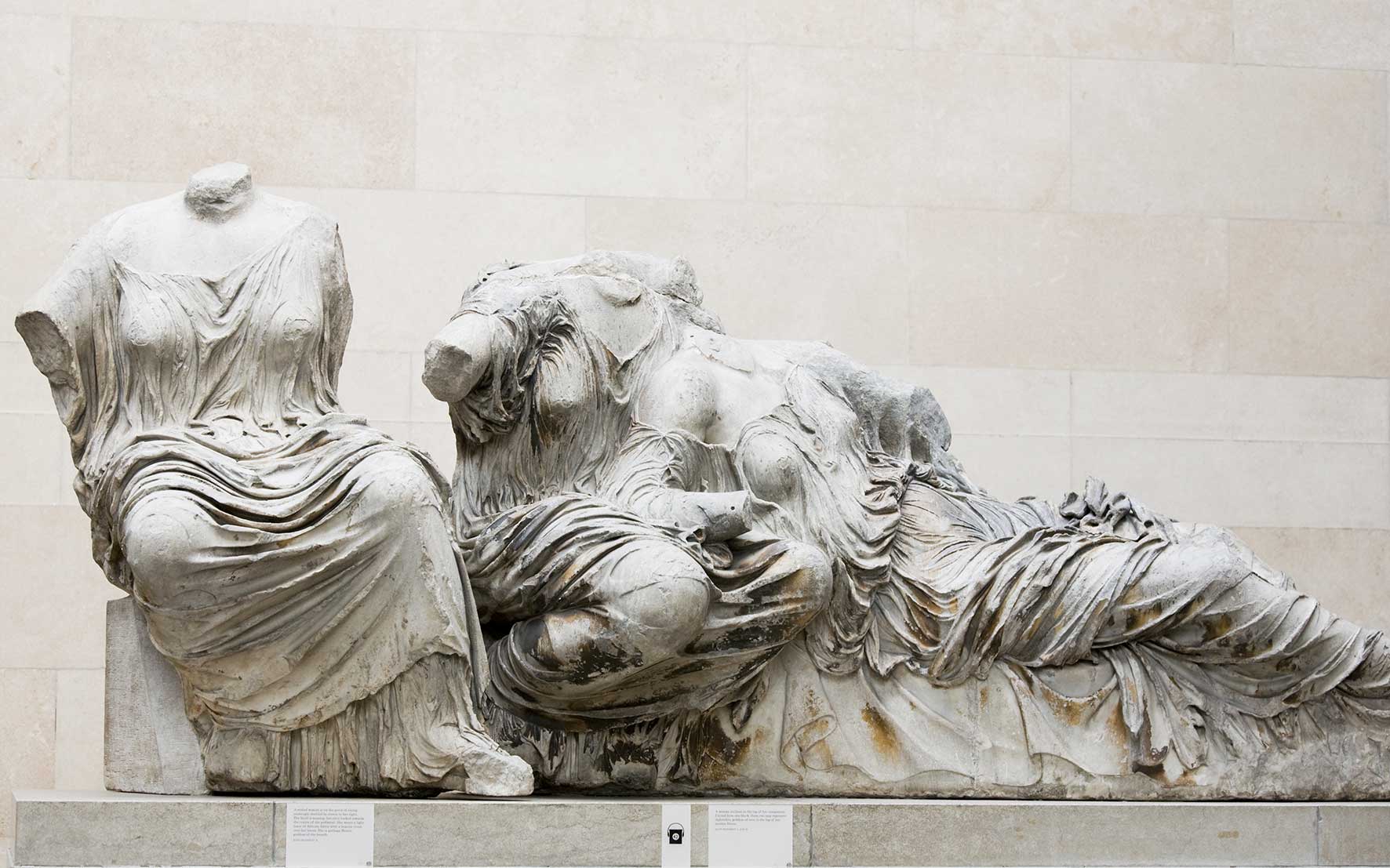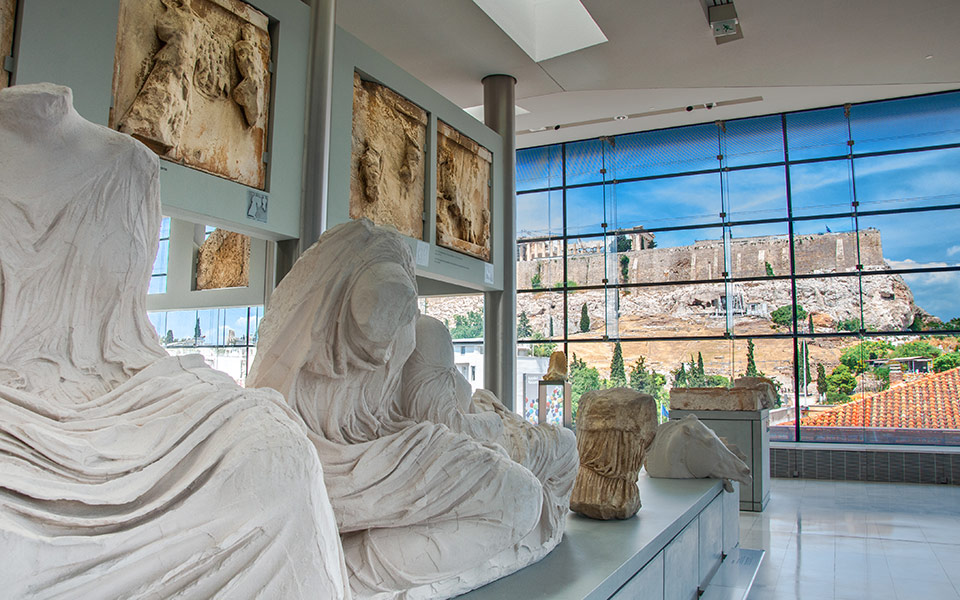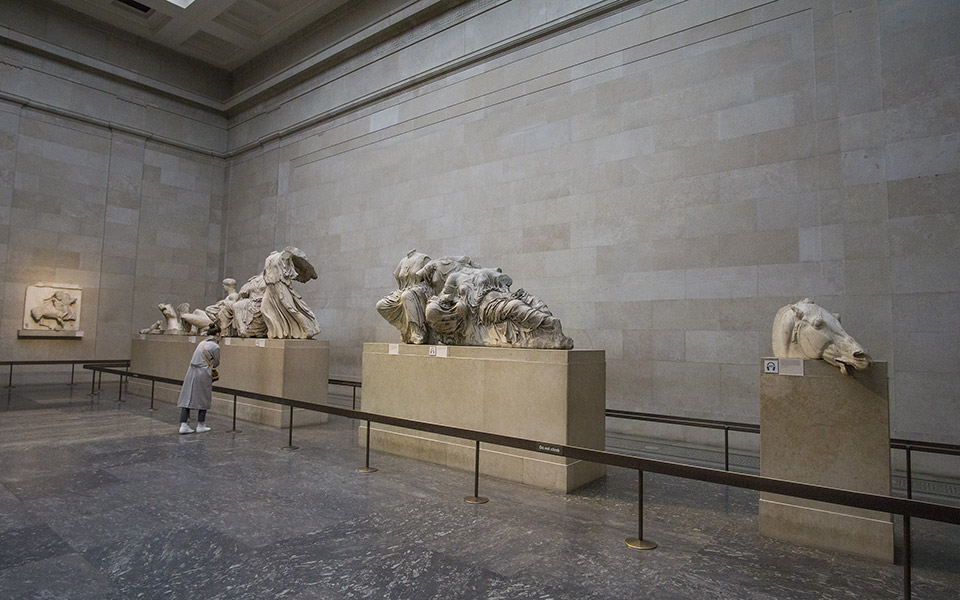The Greek galleries at the British Museum, which house the Parthenon marbles, have not opened to the public after the lockdown. The reason, according to several sources, is flooding.
Apparently, a heavy rainfall in London on July 25, which led to flooding around the city, caused water to leak into one of the museum’s Greek galleries. According to a report by The Art Newspaper, a museum spokeswoman confirmed that “there was some water ingress in one of the [Greek] galleries.”
The newspaper also published photos showing signs of flooding in the museum back in January, as well as a picture taken on Wednesday, showing a fan placed in front of a display of Parthenon sculptures, possibly to help dry the venue.

© Shutterstock
It isn’t the first time that water in the galleries has been an issue. In 2018, images of water dripping into the gallery housing the frieze and sculptures from the Parthenon were widely spread in the media, leading to Greek Culture Minister Lina Mendoni once more expressing the demand that the iconic sculptures be returned to Greece. The museum then claimed that the issue had been addressed.
A message on the British Museum’s website informs visitors that rooms 12-18 (the Greek galleries) are currently closed “due to regular maintenance works.”
The British Museum has stated that the Greek galleries remained closed in July as work and surveys for future restoration was being undertaken, but has not commented on whether there is in fact water damage in the part of the museum where the Parthenon marbles are displayed, nor is it known when the galleries will open again.

© Shutterstock
The Controversy
While the opening of the Acropolis Museum just below the Acropolis hill in 2009 provided Greece with the ideal “home” for all of the Parthenon marbles to be reunited, the British Museum has not agreed with Greece’s claim to the sculptures. While uncountable international institutions and voices support their return on the basis that they were illegally looted by Lord Elgin and sold to the British Museum, the museum’s Trustees’ official argument is that “there’s a positive advantage and public benefit in having the sculptures divided between two great museums, each telling a complementary but different story.”
Another reason for the British Museum’s stance is likely the fear that returning the frieze, metopes and pedimental sculptures from the Parthenon would set an unfavorable precedent, calling into question the legitimacy of all its artifacts acquired before there were international legal norms for the protection of antiquities. For this reason, they claim to not rule out loaning the sculptures to Athens, under the condition Greece acknowledges the British Museum’s ownership – which Greece will not do.
“The current Greek government – like any Greek government – is not going to stop claiming the stolen sculptures which the British Museum, contrary to any moral principle, continues to hold illegally,” Mendoni stated during the birthday celebration for the Acropolis Museum last year.












